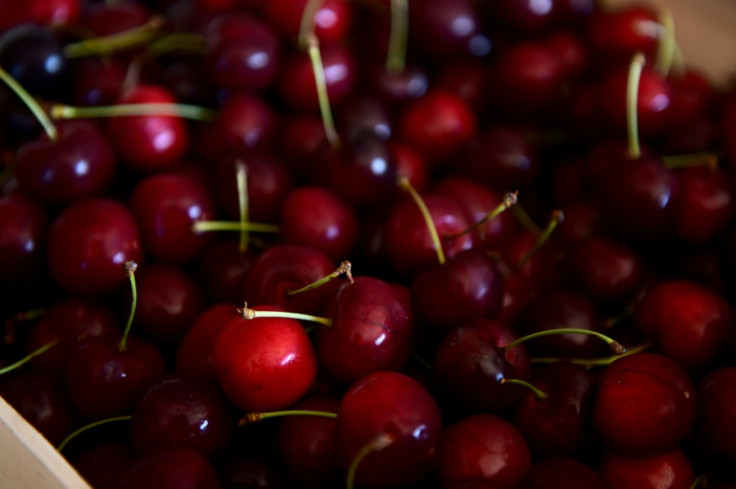Furious French cherry farmers protest over insecticide ban
Angry French cherry farmers dumped a tonne of rotting fruit in front of a government building in southern France on Thursday to protest against an insecticide ban that has left them vulnerable to fruit flies.

Angry French cherry farmers dumped a tonne of rotting fruit in front of a government building in southern France on Thursday to protest against an insecticide ban that has left them vulnerable to fruit flies.
The EU implemented a bloc-wide ban in 2020 on the insecticide dimethoate over health risks posed to farmers and consumers.
The chemical had previously been used to treat fruit fly on a range of crops.
France first banned it in 2016.
Around a dozen farmers deposited ruined cherries in front of a government building in Tournon-sur-Rhone in the fruit-producing Ardeche region, complaining that they had lost 30-40 percent of their crops this year.
"It's becoming impossible for farmers," the regional head of agricultural union FDSEA, Benoit Nodin, told AFP. "The idea is to alert the government, to say: 'Put in place the rescue plan you promised.. give us solutions'."
French crops have been ravaged again this year by a tiny fruit fly known as Drosophila suzukii, an invasive species first recorded in France in 2010, as well as the indigenous Mediterranean fruit fly.
Farmers complain that they have no workable alternative to dimethoate, while French media have noted the exceptionally high prices of cherries this year, a seasonal fruit enjoyed by millions between May and July.
The protest underlines the difficulties for policymakers who are under pressure to reduce the use of synthetic pesticides, insecticides and fertilisers over health concerns, while safeguarding farmer welfare and food production.
"We've tried all sort of things, garlic-based sprays, essential oils, massive traps," said Sylvain Bertrand from the Young Farmers organisation at Thursday's demonstration.
He said some colleagues had experimented with an alternative and relatively new insecticide called Exirel as well as a natural one called pyrethre.
"But clearly nothing works," he said.
The European Environment Agency (EEA) said in April that one or more pesticides had been detected above thresholds of concern at 22 percent of all monitoring sites in rivers and lakes across Europe in 2020.
Pesticide pollution is also driving biodiversity loss across the continent, causing significant declines in insect populations and threatening the critical role they play in food production, the EEA added.
A German study cited in the agency's report found a 76 percent decline in flying insects in protected zones over a period of 27 years.
© Copyright AFP 2025. All rights reserved.





















